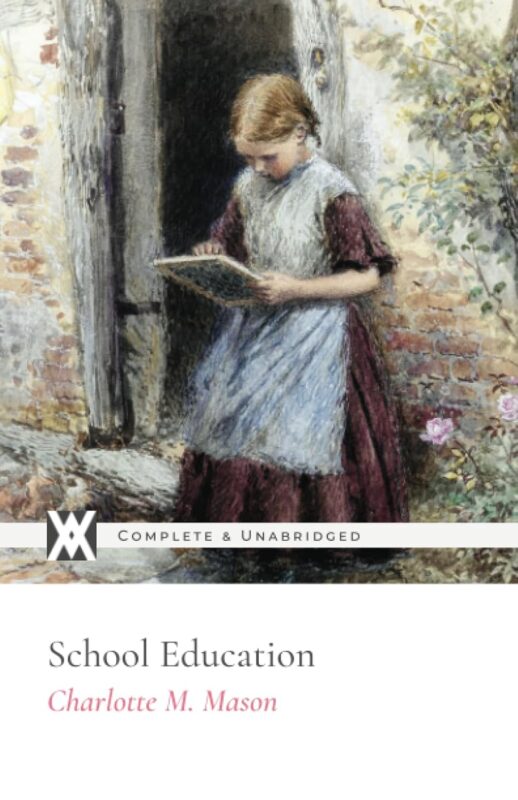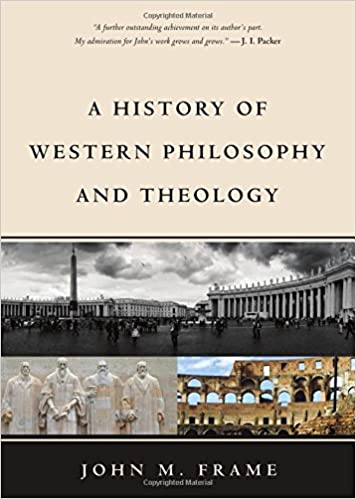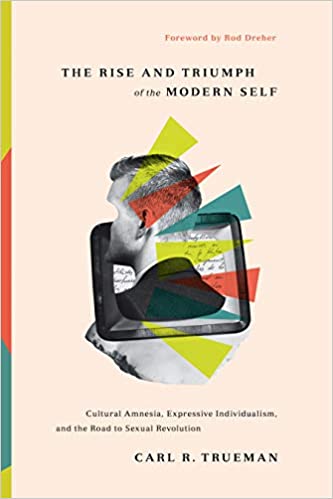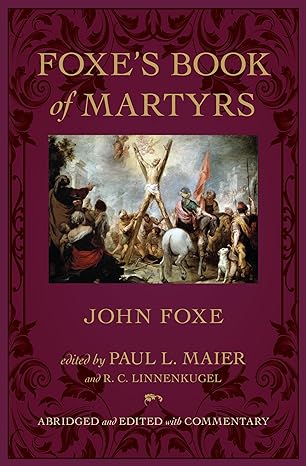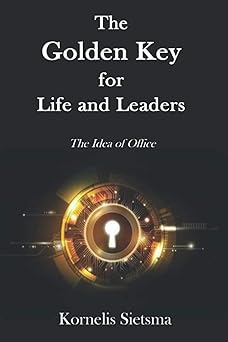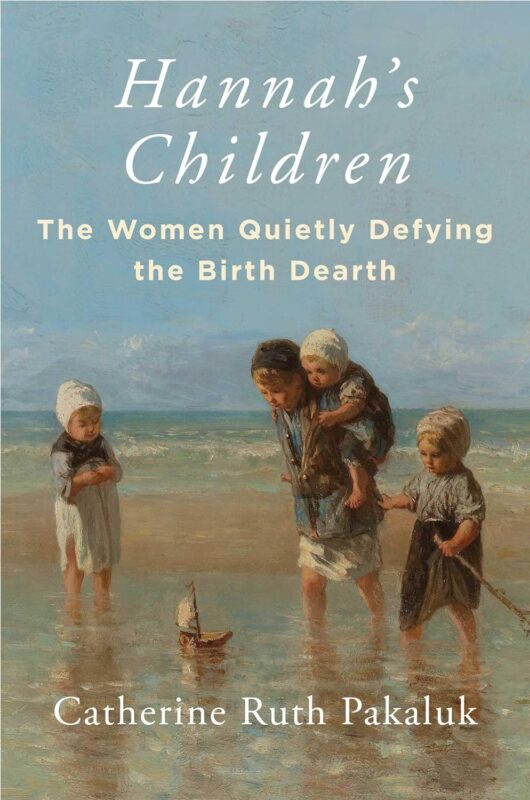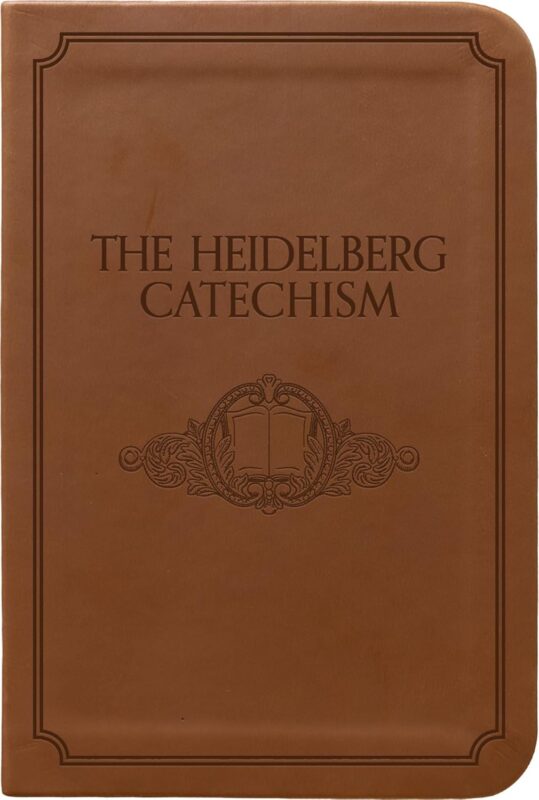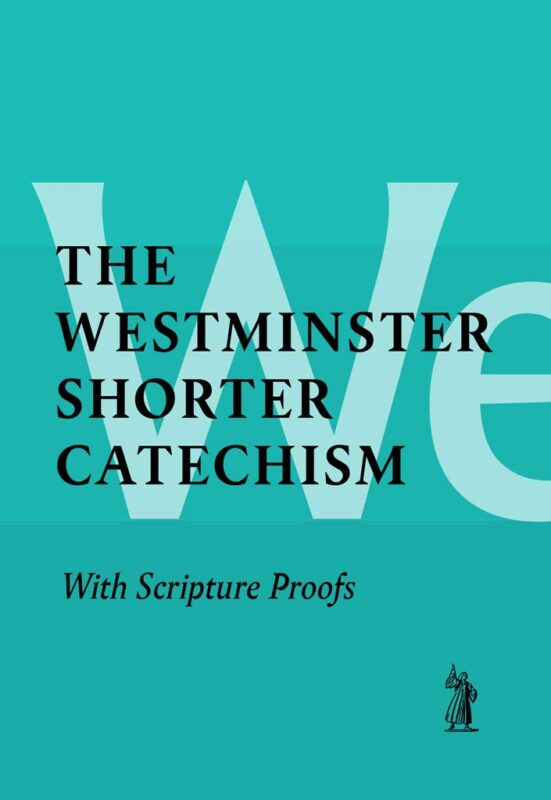Charlotte Mason’s School Education (Book 3 of the Home Education Series)
After teaching about educating young children (up to the age of nine) in Home Education, Charlotte Mason turns her attention to 9-12 year-olds in School Education. Along with examples of books and exams she instructs us on:– The rights of children– The value of holistic education– How to help your child learn for themselves– How to develop the whole person– The importance of living books in education– How grades and rewards kill curiosity
More info →A History of Western Philosophy and Theology
Christians should evaluate philosophy by biblical criteria. This will shed greater light on the developments in the history of philosophy and better prepare us for the intellectual challenges of our time. The fall of Adam brought intellectual as well as moral corruption on the human race, and the effects of the fall can be seen in the work of philosophers, most of whom try to understand the world autonomouslythrough reasoning apart from God's revelation. Some philosophers have appealed to God's revelation, but their work has often been compromised with the wisdom of the world. Revelation should inform reason, and not the other way round. In the past, even Christian theology was corrupted by the movement toward intellectual autonomy, creating the tradition of liberalism, which has unhappily dominated academic theology down to the present day. But there is hope. A new generation of Christian thinkers take God's Word seriously. Frame's unique new contribution augments that process.
More info →The Rise and Triumph of the Modern Self: Cultural Amnesia, Expressive Individualism, and the Road to Sexual Revolution
“Carl Trueman explains modernity to the church, with depth, clarity, and force. The significance of The Rise and Triumph of the Modern Self . . . is hard to overstate.”
—Rod Dreher, from the Foreword
Modern culture is obsessed with identity. Since the landmark Obergefell v. Hodges Supreme Court decision in 2015, sexual identity has dominated both public discourse and cultural trends—yet no historical phenomenon is its own cause. From Augustine to Marx, various views and perspectives have contributed to the modern understanding of the self.
In this timely book, Carl Trueman analyzes the development of the sexual revolution as a symptom—rather than the cause—of the human search for identity. Trueman surveys the past, brings clarity to the present, and gives guidance for the future as Christians navigate the culture in humanity’s ever-changing quest for identity.
More info →Foxe’s Book of Martyrs
An updated and modernized edition of the unparalleled classic with resurgent relevance for the twenty-first century
Foxe's Book of Martyrs is one of the most influential and well-known books in history, as well as one of the top-sellers of the past, right up there with the Bible itself. Immensely popular in Foxe's own sixteenth century, its influence has been felt throughout literature. Copies of the original text (Acts and Monuments) were chained beside the Bible in churches of England, and even sailed with English pirates.
This was not a book designed to comfort, but instead to present the truth of the persecution faced by Protestant Christians in hostile environments. The inscription from the 1563 edition--now commonly known as Foxe's Book of Martyrs--indicates the gravity of the task: "[In] latter and perilous days . . . the great persecutions and horrible troubles . . . [are here] gathered and collected according to true copies and writings . . . of the parties themselves that suffered." Foxe was committed to commemorating the ultimate sacrifice of those who gave their lives for the sake of their faith.
Paul L. Maier brings his exceptional mind for history to bear on Foxe's work in this new edition. While abridgement of the original 2,100 pages was necessary, Maier does include every martyr, and text was changed only where modern readers may not readily understand the original archaic wording.
John Foxe (1516-1587) was an academic and zealous student of the Scriptures, leading to his persecution as a Protestant by the Catholic rulers of his day. Beyond his work in pastoral ministry, Foxe continued to work on his martyrology until his death.
More info →The Golden Key for Life and Leaders: The Idea of Office
Unlocking the Secret. Society is adrift, without a rudder. The people are perishing because they lack the vision for life and leadership. Whether in the government, education, on the job, at home and, especially, in the church . . . something has been lost, hasn’t it? But there is hope! It's the right idea of office. The true idea that actually works in the real world for those who are moved to take a firm step of true faith.A pastor-scholar, Dr. Sietsma’s concise and inspiring instruction is not only based in Scripture, it is also tried and tested in the praxis of life’s challenges and hardships. Yes, society has a mess on its hands. So, what the author offers is even more relevant for us in the 21st century. There is a way forward—for those who hold the key. Minister - Martyr “Kees” Sietsma first studied in Kampen, and then went on to earn his doctorate at the Free University of Amsterdam. He and his wife had five children. Then it happened. On the Monday following that sermon on Sunday for his flock in Amsterdam, he was arrested for his faith. He died at the age of 46 in the Dachau concentration camp. Includes foreword by David T. Koyzis, Ph.D. REVIEWS"The Golden Key for Life and Leaders provides erudite guidance to those following a specific ministry calling, or pursuing an academic analysis of Biblical office as a concept. It further succeeds at encouraging individual self-examination of one’s performance in the role of Believer. Sietsma’s brave leadership and obedience to God in his own office are to be recognized and celebrated. Even now, humanity seeks effective crisis leadership as history seems to repeat itself. The Theology of Leadership Journal acknowledges that the traditional church has interpreted God's commission as a call to followership. Kornelis Sietsma, pastor and scholar, wrote his treatise on The Idea of Office at a time that called for greater structure and clarity of expectation for both leaders and followers. In benevolent but unequivocal terms, Sietsma insisted that followers (“Believers”) had an obligation to take ownership for making a clear declaration of faith and living by that declaration, joining with and the local church and adhering to its norms and mores as long as they were Scripturally sound. He taught that leaders in the church must provide full-throated guidance and shepherding for their people, which would in turn influence the people to make wise decisions in their business, social, and political endeavors. Those church leaders should maintain a respectful distance from the other spheres of leadership, focusing on serving God and then on serving man. The relevance and utility of The Golden Key for Life and Leaders in contemporary church leadership development center on its clear message of structure and accountability, duty and responsibility, with grace as the foundation." Angela Spraner, Ph.D Theology of Leadership Journal (Fall 2020)
More info →Hannah’s Children: The Women Quietly Defying the Birth Dearth
A portrait of America's most interesting yet overlooked women.
In the midst of a historic "birth dearth," why do some 5 percent of American women choose to defy the demographic norm by bearing five or more children? Hannah’s Children is a compelling portrait of these overlooked but fascinating mothers who, like the biblical Hannah, see their children as their purpose, their contribution, and their greatest blessing.
The social scientist Catherine Pakaluk, herself the mother of eight, traveled across the United States and interviewed fifty-five college-educated women who were raising five or more children. Through open-ended questions, she sought to understand who these women are, why and when they chose to have a large family, and what this choice means for them, their families, and the nation.
Hannah’s Children is more than interesting stories of extraordinary women. It presents information that is urgently relevant for the future of American prosperity. Many countries have experimented with aggressively pro-natalist public policies, and all of them have failed. Pakaluk finds that the quantitative methods to which the social sciences limit themselves overlook important questions of meaning and identity in their inquiries into fertility rates. Her book is a pathbreaking foray into questions of purpose, religion, transcendence, healing, and growth—questions that ought to inform economic inquiry in the future.
More info →The Heidelberg Catechism
In the early 1560s Frederick III (1516-76), Elector Palatine desired that his subjects be led to a 'devout knowledge and fear of the Almighty and his holy Word of salvation'. He commissioned a group of theologians and ministers to compose a catechetical summary of biblical truth that could be committed to memory and be an encouragement to personal faith and growth in Christ. The final version was approved by the Synod in Heidelberg (1563), the city lending its name to the catechism.
The Heidelberg Catechism follows the pattern of the Epistle to the Romans. It opens with the question 'What is your only comfort in life and in death?', and then examines the realities of human sin and misery (Rom. 1-3:20); salvation in Christ, including faith and repentance (Rom. 3:21-11:36); and the Christian life of thankful obedience in response to God's grace in Christ (Rom. 12-16). The catechism stands as a faithful testimony to the ancient Christian faith in its scripturally derived shape and content, and further expressed in its exposition and application of the Apostles' Creed, the sacraments of baptism and the Lord's Supper, the Ten Commandments, and the Lord's Prayer.
More info →The Westminster Shorter Catechism
In the opinion of B. B. Warfield, the Westminster divines left to posterity not only ‘the most thoroughly thought – out statement ever penned’ of the elements of evangelical religion’ but also one which breathes ‘the finest fragrance of spiritual religion.’ Their most influential work, The Shorter Catechism, though more than 350 years old, is undoubtedly still one of the best introductions to the key doctrines of the Christian faith.
More info →
